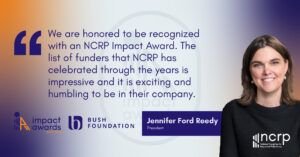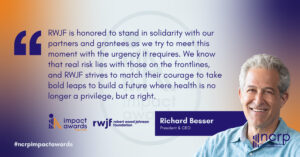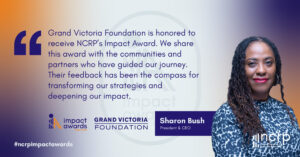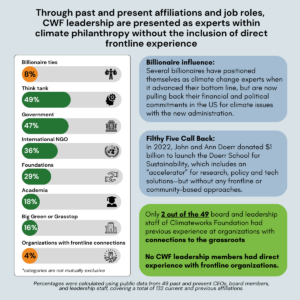Editor’s Note: Over the next couple of weeks, we will be sharing stories from leadership development experts about the value they’ve found in Cultivating Nonprofit Leadership: A (Missed?) Philanthropic Opportunity, which contains new research from NCRP showing just how underfunded leadership development is in our sector. In this piece, Britt Yamamoto, executive director of iLEAP, shares why the report matters to his organization’s mission of inspiring leaders to ignite social change. For past coverage of this report, click here.
iLEAP is thrilled to be featured in the new National Committee for Responsive Philanthropy (NCRP) report, Cultivating Nonprofit Leadership: A (Missed?) Philanthropic Opportunity. Furthermore, we are deeply humbled to be profiled in it as a leadership development resource, alongside the exemplary work of other leadership development luminaries such as the Rockwood Leadership Institute, LeaderSpring and Selah.
Cultivating Nonprofit Leadership makes the case that funders need to invest more resources in leadership development in the social sector. iLEAP’s work of preparing and sustaining people around the world to lead social change through integrated leadership programs is, of course, closely aligned with this strategy. We sincerely hope that this report will capture the attention of more funders in the field.
Ultimately, an investment in leadership development is a belief in people and their creative capacities to remake our world into a better place for all. The infrastructure around philanthropy is often so focused on solving issues, alleviating social problems and helping affected communities that we can forget about the leaders who have committed their lives to doing this work. At iLEAP, we believe that sustainable social change is directly linked to the sustainability of these women and men.
iLEAP’s success resides at the intersection of the personal and the social. We have learned from our graduates that deep-impact leadership development is an integrated practice that weaves together the full self and its place in a complex, interconnected world. While trainings that address skills development and technical know-how are important, we have learned that investing in leaders requires designing qualitative experiences that invite participants from all places and experiences to participate in deeper dialogue with themselves and each other. As the poet David Whyte wrote, it is the “visible and the invisible that work together in common cause to produce the miraculous.”
iLEAP | IGNITING SOCIAL CHANGE from iLEAP on Vimeo.
Over the past seven years, it has been our privilege to work with more than 300 established and emerging social leaders from over 30 countries in a process of transformation. Small cohorts of 10 to 25 people participate in our leadership trainings that range in length from one to eight weeks. Often there are nearly as many countries represented as people in the program. These global cohorts help us all learn from the ways in which we construct our personal and social narratives about who we are and what we do in the world. This diversity of perspective coupled with the naturally disruptive atmosphere of a leadership development program leads to the breaking down of barriers and the establishment of a truly collaborative, relational learning space.
Our participants confront not only the social norms that they may be fighting against in their home settings, but also their own biases related to gender, sexuality, ethnicity, capitalism and colonialism. All of this occurs in a structured environment that encourages self-reflection and self-renewal. We have been told by our graduates that, as the result of this exploration in a safe and supportive learning space, their leadership capacities expand and deepen in ways they could never have known before participating in the iLEAP program. We also believe that the diversity found in the richness of a global community is a vital piece of preparing and sustaining people to lead in the 21st century.
I strongly encourage anyone who is involved in philanthropy to read Cultivating Nonprofit Leadership. It will help you answer the question “Why invest in leadership development?” and direct you to further resources, including other institutional funders already investing in the practice. As the leader of an organization that’s deeply invested in reinvigorating leaders using a holistic framework, I greatly appreciate the evidence NCRP offers to support that inclusive leadership development is crucial to our shared goal of transformative social change.
Dr. Britt Yamamoto is the executive director of iLEAP. Follow @iLEAPglobal on Twitter and join the #CultivateNonprofitLeadership conversation.








































































































































































































































































































































































































































